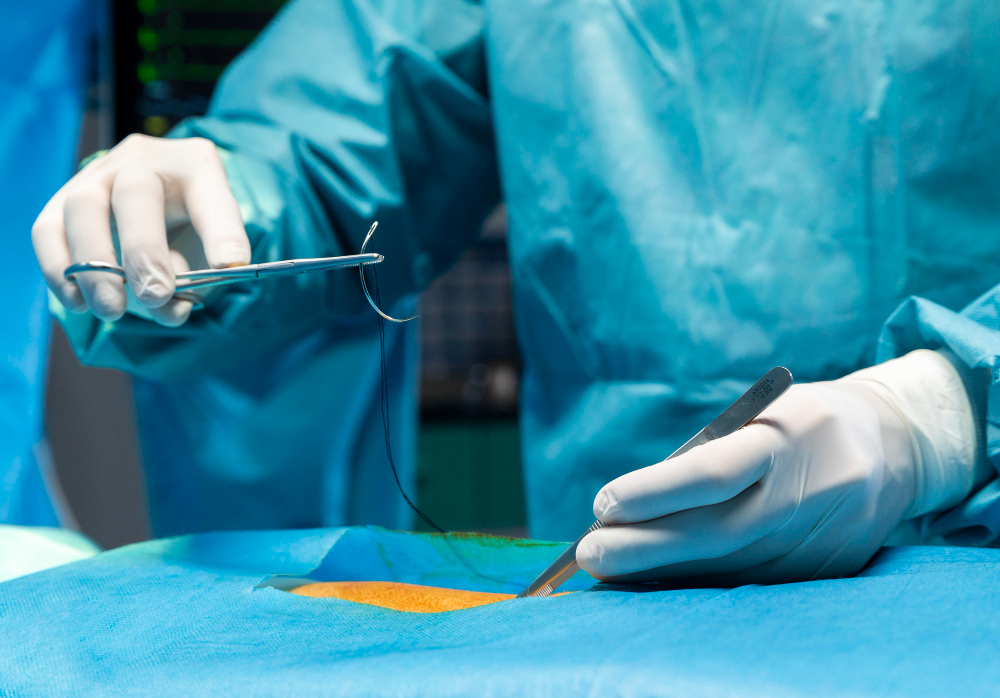Surgical mesh is a critical component in various procedures, including hernia repairs, organ prolapse treatments, and more. Choosing the right mesh is essential to ensuring the success of these surgeries. In this comprehensive guide, we will break down the factors you should consider when selecting the right surgical mesh for your needs.
What is Surgical Mesh?
Surgical mesh is a medical device made from synthetic or biological materials used to support weakened or damaged tissue during surgery. It acts as a scaffold, providing strength and structure to the affected area. There are different types of surgical meshes, each designed for specific applications, and they vary in terms of material, porosity, and durability.
Factors to Consider When Choosing the Right Surgical Mesh
1. Type of Surgery
The type of surgery you are performing greatly influences the type of mesh you will use. For example, for hernia repairs, a mesh that is biocompatible, durable, and flexible is required. Suture Planet offers a range of surgical meshes specifically designed for such procedures, ensuring excellent results.
2. Material
Surgical meshes are typically made from synthetic materials (such as polypropylene, polyester, or expanded polytetrafluoroethylene) or biological materials (such as pig or human tissue). Synthetic meshes tend to be more commonly used due to their strength, availability, and long shelf life. Suture Planet specializes in polypropylene mesh, a highly durable and versatile option for both laparoscopic and open procedures.
3. Porosity
Porosity refers to the mesh’s ability to allow tissue growth and fluid drainage. Meshes with higher porosity allow for better integration with the surrounding tissue, reducing the risk of infection and promoting faster healing. When selecting a mesh, consider whether the procedure requires a mesh with high or low porosity. Suture Planet provides a wide range of mesh options with varying porosity levels to cater to different surgical needs.
4. Mesh Flexibility and Adaptability
Flexibility is crucial when selecting a mesh for procedures that require the mesh to conform to complex anatomical regions. A mesh that is too rigid can result in discomfort for the patient and may increase the risk of complications. Suture Planet’s polypropylene mesh features an adaptable design that offers a balance of strength and flexibility, ensuring optimal patient comfort and support during the recovery process.
5. Absorbability vs. Non-Absorbability
Some surgical meshes are absorbable, meaning they are designed to break down and be absorbed by the body over time. These meshes are often used in temporary applications or when long-term support is not required. Non-absorbable meshes are more commonly used for hernia repairs, providing long-lasting support and structural integrity. The choice between absorbable and non-absorbable mesh depends on the specific surgical requirements.
6. Biocompatibility
Biocompatibility is a key factor when selecting any surgical implant, and surgical mesh is no exception. The mesh must be able to integrate with the body without causing an immune response. Synthetic meshes, such as those offered by Suture Planet, are designed to be biocompatible, reducing the likelihood of rejection and adverse reactions.
7. Size and Shape
Meshes come in various sizes and shapes to fit the specific surgical site. For example, hernia repair meshes come in both flat and pre-shaped designs. It is crucial to choose the right size and shape to avoid complications and ensure the mesh fits properly at the site of implantation. Suture Planet offers a comprehensive range of mesh sizes, ensuring that surgeons have the right fit for any procedure.
8. Mesh Coating
Some surgical meshes come with a coating designed to enhance their performance. Coatings, such as antibacterial layers, reduce the risk of infection. For example, Suture Planet’s polypropylene mesh can be coated with antibacterial substances to offer additional protection and ensure a lower infection rate post-surgery.
The Importance of Choosing the Right Surgical Mesh
Using the correct surgical mesh is paramount for achieving optimal patient outcomes. Selecting the right mesh can significantly reduce the risk of complications, promote better healing, and ensure long-term success. Whether you are performing a hernia repair or any other type of surgery, you should carefully assess the available options and choose a mesh that aligns with your patient’s needs and the procedure’s requirements.
Conclusion
Choosing the right surgical mesh is not a one-size-fits-all decision. The type of surgery, material, flexibility, and biocompatibility all play an important role in ensuring the best outcome for patients. Suture Planet offers a wide range of surgical mesh options to meet the needs of various surgical procedures. By considering all the factors outlined in this guide, you can confidently choose the right mesh for your next surgery, helping you achieve the best possible outcomes for your patients.
For more information or to order your mesh, visit Suture Planet and explore our comprehensive selection of surgical mesh products.



